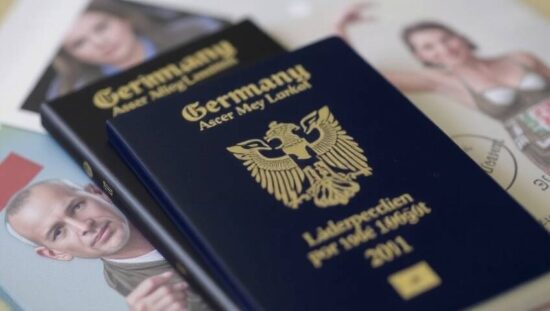Pass Applications Surge in Germany After New Citizenship Law Takes Effect
According to the “Bild-Zeitung” in its Friday edition, the number of applications for the German passport has significantly increased in various German municipalities since the new State Citizenship Law took effect six months ago.
Local foreigner registration offices are struggling to cope with the surge, with processing times extending to 18 months, as stated by a Munich city spokesperson. By the end of November, a total of 82,724 applications for naturalization were submitted in Bavaria, the state government reported.
Prior to the law’s amendment on June 27, the number of applications per month was around 6,000. In July, the figure suddenly jumped to 11,410, and in August, it was 7,333. Since then, the number has remained around 9,000 per month.
In Stuttgart, a total of 4,488 applications were submitted by the end of October, a significant increase from the 3,234 cases in 2023. The average number of applications per month was 332, but since July, it has been 625.
In Hesse, the number of applications rose from 31,900 in 2023 to 39,400 by mid-December, a 23.5% increase. In Frankfurt alone, there were 8,838 applications, a 42.2% increase.
In Düsseldorf, the foreigner registration office registered 6,395 applications by the end of November, a 34.9% increase from the previous year. In Braunschweig, the number of applications was 1,831, a 27% increase, and in the Hannover region, it was 3,424, a 6.1% increase.
In Cologne, 4,600 naturalization procedures were initiated, but there are still 13,000 applications pending, with the actual number of applications to be processed being lower due to multiple applications.
Halle and Magdeburg in Saxony-Anhalt saw no significant changes in the number of applications.
Landkreistags President Achim Brötel (CDU) criticized the timing of the law’s implementation, stating that the authorities are struggling not only with the naturalization process but also with the current migration dynamics. “The reform has definitely come at the wrong time” he said, adding that the local authorities are left to implement the federal government’s decisions alone. “The naturalization law is a prime example of the current chaos: Berlin makes the decisions, and we pay the bill. This needs to change urgently in the future” Brötel emphasized.





